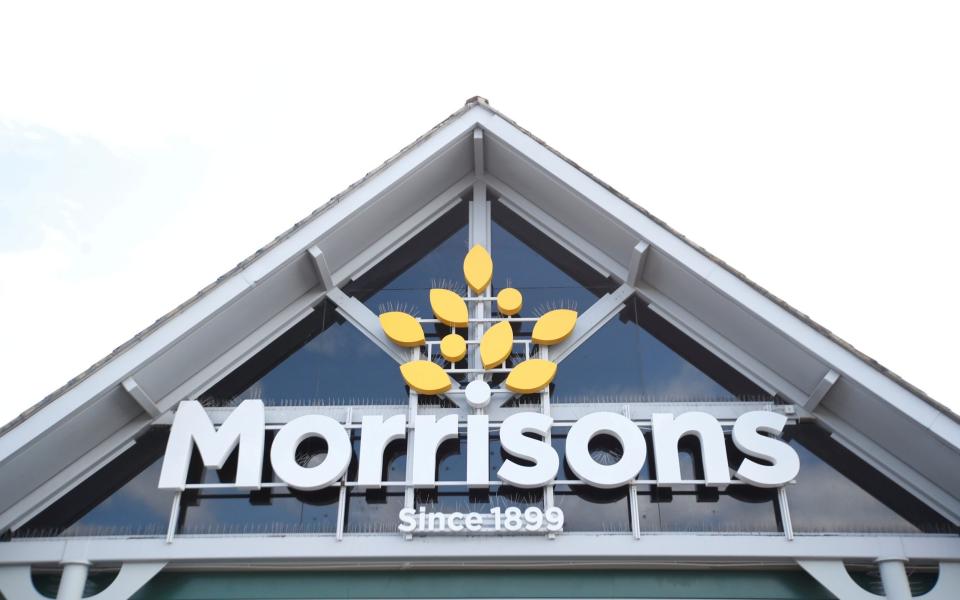Morrisons hit by huge pay revolt

More than two thirds of Morrisons shareholders have voted against the supermarket's plan to hand bosses bumper payouts in one of the biggest corporate rebellions on record.
At the heart of the revolt was the removal of £290m of Covid-related costs before bonuses were calculated, with 70.1pc of investor votes cast against its remuneration report at its annual meeting in Bradford on Thursday.
Several influential shareholder advisory firms including the Investment Association and ISS urged investors to vote against the grocer's pay packets ahead of the meeting.
The company argued on Thursday that chief executive David Potts deserved the pay deal having led the supermarket through the pandemic.
Mr Potts, who has waived salary increases for six years, has been handed a total pay package worth £4.2m including the bonus. He was also given shares worth £1.4m despite profits plunging to £165m from £435m in the previous year.
The pay committee upgraded the chief executive's payout after it stripped out the cost of the pandemic when calculating whether a bonus would be appropriate.
Although investors took issue with these "adjustments", the vote is advisory and thus not binding.
The retailer said it noted the "very significant majority" vote against the pay deal but defended the boardroom decision.
Morrisons was the first supermarket to improve payment terms for small suppliers. All staff were awarded bonuses - the average reward was trebled and paid early - to recognise their efforts during the pandemic.
There have been four larger defeats in the last five years. Other notable revolts include a rebellion at Tesco last year (67pc), when its remuneration committee also chose overhaul some pay criteria, and against a £110m payout for Jeff Fairburn at Persimmon in 2018 (64pc).
Morrisons said: "In the committee's view, Morrisons performed exceptionally well for the nation during the first year of Covid with the executives widely recognised for their leadership, clarity, decisiveness, compassion and speed of both decision-making and execution.
"In these circumstances, the remuneration committee believed that it was appropriate to apply some discretion to the remuneration of the senior executives.
"It is a matter of sincere regret to the committee that it clearly has not been able to convince a majority of shareholders - or the proxy voting agencies - that this was the right course of action."
The company said it would re-engage with shareholders, listen to their views, and once again make the case for why discretion was used in what it called a genuinely exceptional year.
Morrisons said sales continued to grow in the latest quarter as pandemic restrictions kept grocery sales strong. Like-for-like sales in the 14 weeks to May 9 were 2.7pc higher, excluding fuel.
The investor outrage comes a year after more than a third of investors voted against its pay policy for 2019-20, amid concerns over generous pension deals for Mr Potts and chief operating officer Trevor Strain.

Separately, Asda revealed that underlying sales growth accelerated in its latest quarter under the new ownership of Zuber and Mohsin Issa and private equity firm TDR, who bought the chain from Walmart. It also confirmed that Walmart has taken almost £3bn worth of dividends ahead of its takeover.
Like-for-like sales, excluding fuel, rose 7.3pc year-on-year in its first quarter to March 31, compared with growth of 5.1pc in the previous quarter.
It posted annual sales of £20.3bn, up 3.6pc excluding fuel for the year to the end of December, while operating profit was 16.7pc to £486.5m due to Covid related costs.
The rise in sales was driven by non-food products and online shopping during the third lockdown.
Like-for-like clothing sales increased by 31pc and general merchandise sales by 39pc following a spike in demand for outdoor furniture, barbecues and garden accessories, the firm said. Total digital sales rose 88pc.

 Yahoo Finance
Yahoo Finance 